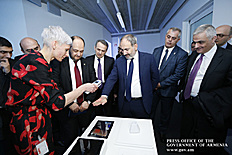 1670x1113px - 560 Kb
1670x1113px - 560 Kb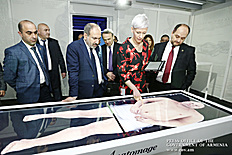 1670x1113px - 603 Kb
1670x1113px - 603 Kb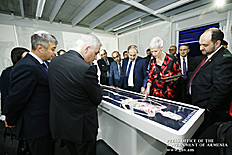 1670x1113px - 667 Kb
1670x1113px - 667 Kb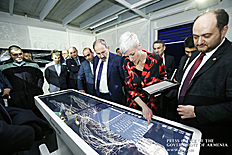 1670x1113px - 771 Kb
1670x1113px - 771 Kb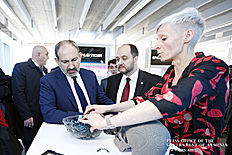 1670x1113px - 596 Kb
1670x1113px - 596 Kb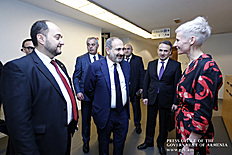 1670x1113px - 574 Kb
1670x1113px - 574 Kb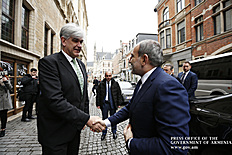 1670x1113px - 513 Kb
1670x1113px - 513 Kb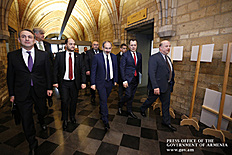 1670x1113px - 778 Kb
1670x1113px - 778 Kb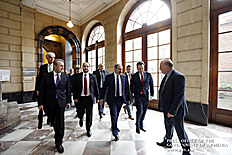 1670x1113px - 648 Kb
1670x1113px - 648 Kb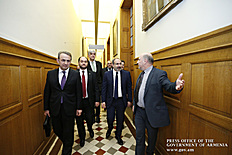 1670x1113px - 636 Kb
1670x1113px - 636 Kb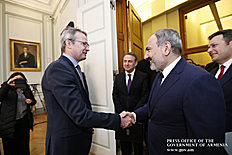 1670x1113px - 492 Kb
1670x1113px - 492 Kb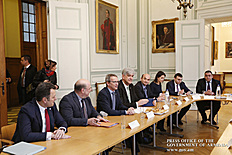 1670x1113px - 644 Kb
1670x1113px - 644 Kb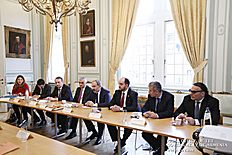 1670x1113px - 690 Kb
1670x1113px - 690 Kb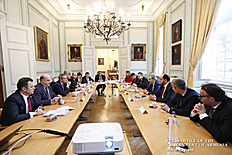 1670x1113px - 745 Kb
1670x1113px - 745 Kb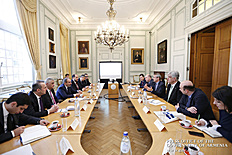 1670x1113px - 720 Kb
1670x1113px - 720 Kb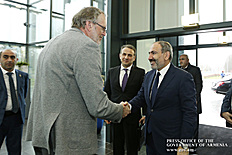 1670x1113px - 526 Kb
1670x1113px - 526 Kb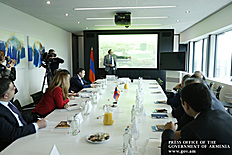 1670x1113px - 609 Kb
1670x1113px - 609 Kb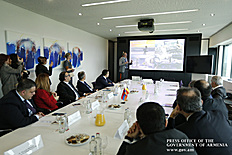 1670x1113px - 601 Kb
1670x1113px - 601 Kb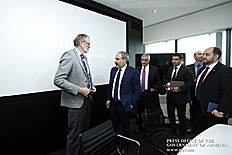 1670x1113px - 413 Kb
1670x1113px - 413 Kb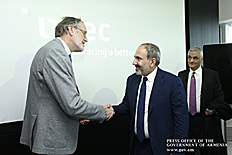 1670x1113px - 438 Kb
1670x1113px - 438 Kb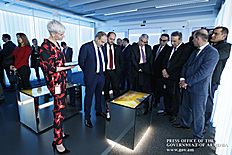 1670x1113px - 655 Kb
1670x1113px - 655 Kb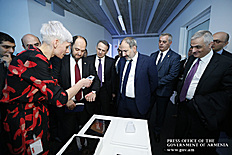 1670x1113px - 564 Kb
1670x1113px - 564 Kb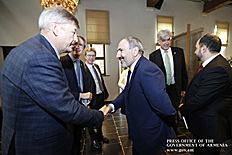 1670x1113px - 604 Kb
1670x1113px - 604 Kb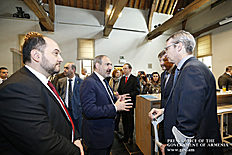 1670x1113px - 662 Kb
1670x1113px - 662 Kb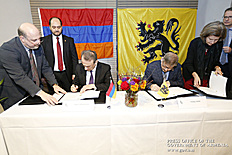 1670x1113px - 671 Kb
1670x1113px - 671 Kb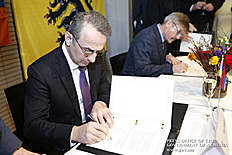 1670x1113px - 593 Kb
1670x1113px - 593 Kb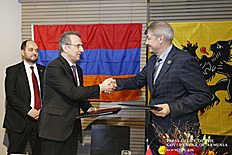 1670x1113px - 750 Kb
1670x1113px - 750 Kb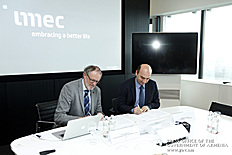 1670x1113px - 368 Kb
1670x1113px - 368 Kb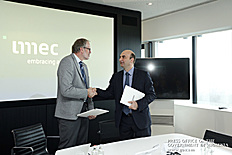 1670x1113px - 333 Kb
1670x1113px - 333 Kb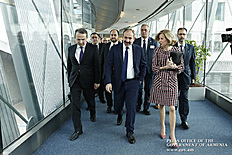 1670x1113px - 751 Kb
1670x1113px - 751 Kb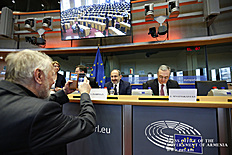 1670x1113px - 749 Kb
1670x1113px - 749 Kb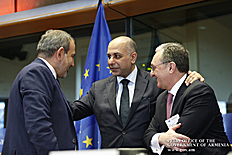 1670x1113px - 601 Kb
1670x1113px - 601 Kb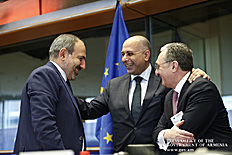 1670x1113px - 627 Kb
1670x1113px - 627 Kb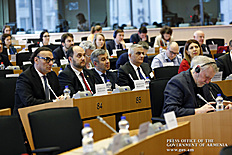 1670x1113px - 614 Kb
1670x1113px - 614 Kb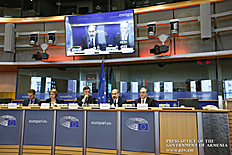 1670x1113px - 808 Kb
1670x1113px - 808 Kb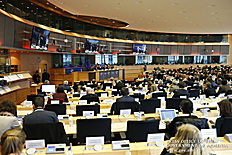 1670x1113px - 845 Kb
1670x1113px - 845 Kb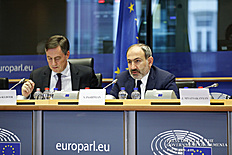 1670x1113px - 659 Kb
1670x1113px - 659 Kb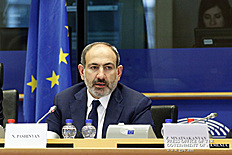 1670x1113px - 592 Kb
1670x1113px - 592 Kb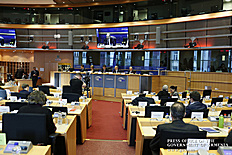 1670x1113px - 824 Kb
1670x1113px - 824 Kb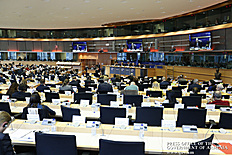 1670x1113px - 802 Kb
1670x1113px - 802 Kb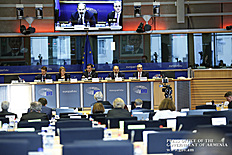 1670x1113px - 800 Kb
1670x1113px - 800 Kb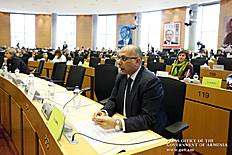 1670x1113px - 489 Kb
1670x1113px - 489 Kb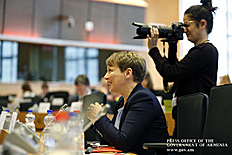 1670x1113px - 409 Kb
1670x1113px - 409 Kb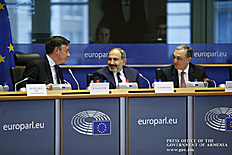 1670x1113px - 650 Kb
1670x1113px - 650 Kb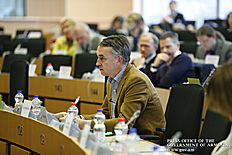 1670x1113px - 461 Kb
1670x1113px - 461 Kb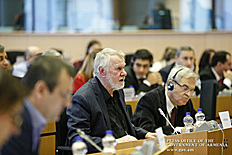 1670x1113px - 446 Kb
1670x1113px - 446 Kb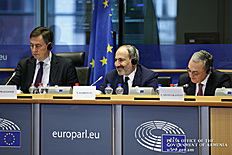 1670x1113px - 654 Kb
1670x1113px - 654 Kb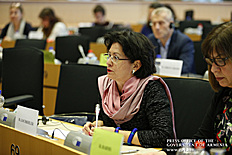 1670x1113px - 480 Kb
1670x1113px - 480 Kb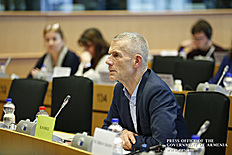 1670x1113px - 618 Kb
1670x1113px - 618 Kb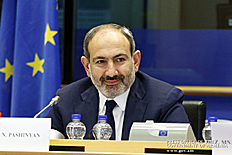 1670x1113px - 599 Kb
1670x1113px - 599 Kb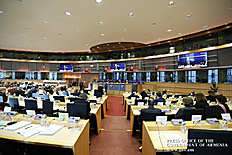 1670x1113px - 806 Kb
1670x1113px - 806 Kb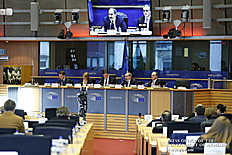 1670x1113px - 829 Kb
1670x1113px - 829 Kb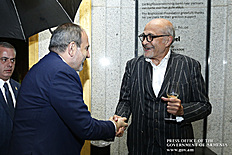 1670x1113px - 685 Kb
1670x1113px - 685 Kb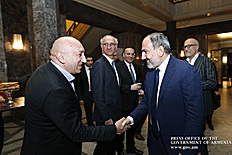 1670x1113px - 492 Kb
1670x1113px - 492 Kb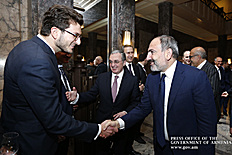 1670x1113px - 522 Kb
1670x1113px - 522 Kb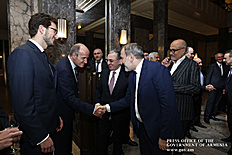 1670x1113px - 483 Kb
1670x1113px - 483 Kb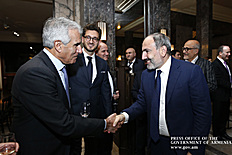 1670x1113px - 362 Kb
1670x1113px - 362 Kb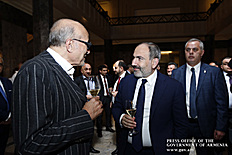 1670x1113px - 348 Kb
1670x1113px - 348 Kb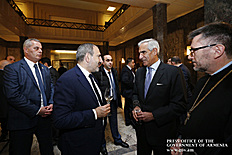 1670x1113px - 603 Kb
1670x1113px - 603 Kb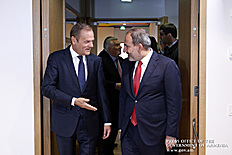 1670x1113px - 515 Kb
1670x1113px - 515 Kb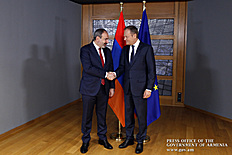 1670x1113px - 600 Kb
1670x1113px - 600 Kb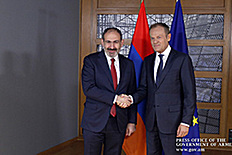 320x202px - 47 Kb
320x202px - 47 Kb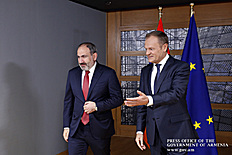 1670x1113px - 623 Kb
1670x1113px - 623 Kb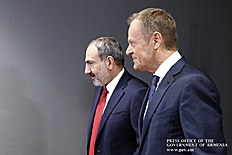 1670x1113px - 552 Kb
1670x1113px - 552 Kb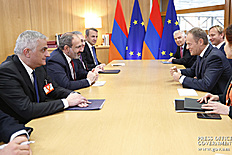 1670x1113px - 604 Kb
1670x1113px - 604 Kb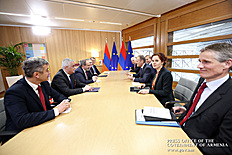 1670x1113px - 623 Kb
1670x1113px - 623 Kb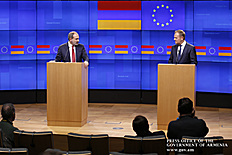 1670x1113px - 365 Kb
1670x1113px - 365 Kb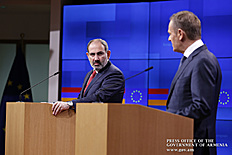 1670x1113px - 330 Kb
1670x1113px - 330 Kb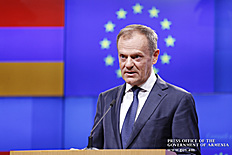 1670x1113px - 325 Kb
1670x1113px - 325 Kb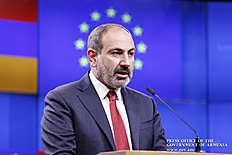 1670x1113px - 458 Kb
1670x1113px - 458 Kb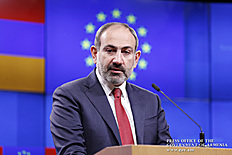 1670x1113px - 443 Kb
1670x1113px - 443 Kb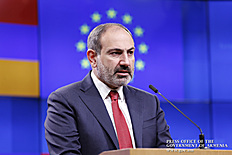 1670x1113px - 415 Kb
1670x1113px - 415 Kb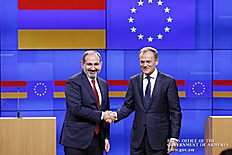 1670x1113px - 379 Kb
1670x1113px - 379 Kb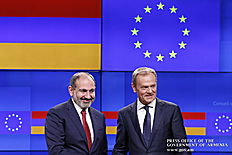 1670x1113px - 370 Kb
1670x1113px - 370 Kb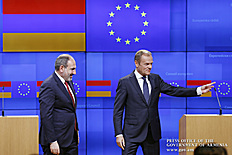 1670x1113px - 365 Kb
1670x1113px - 365 Kb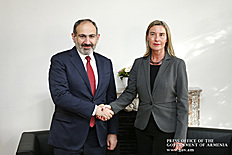 1670x1113px - 482 Kb
1670x1113px - 482 Kb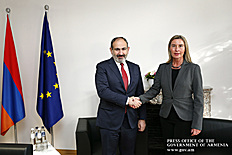 1670x1113px - 464 Kb
1670x1113px - 464 Kb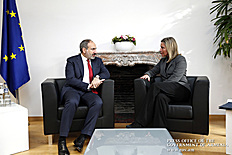 1670x1113px - 505 Kb
1670x1113px - 505 Kb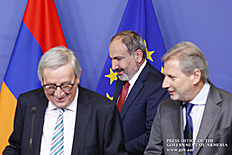 1670x1113px - 560 Kb
1670x1113px - 560 Kb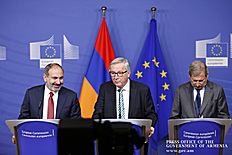 1670x1113px - 397 Kb
1670x1113px - 397 Kb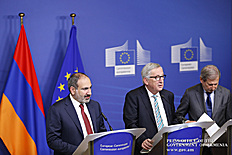 1670x1113px - 582 Kb
1670x1113px - 582 Kb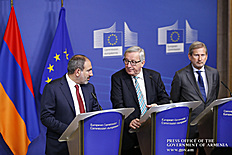 1670x1113px - 586 Kb
1670x1113px - 586 Kb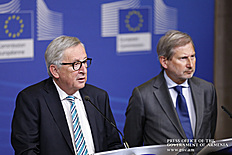 1670x1113px - 541 Kb
1670x1113px - 541 Kb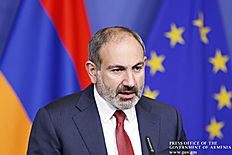 1670x1113px - 651 Kb
1670x1113px - 651 Kb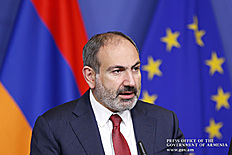 1670x1113px - 636 Kb
1670x1113px - 636 Kb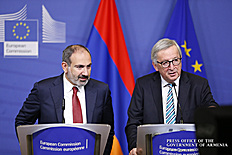 1670x1113px - 597 Kb
1670x1113px - 597 Kb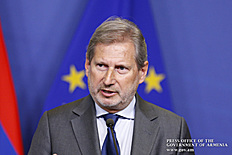 1670x1113px - 562 Kb
1670x1113px - 562 Kb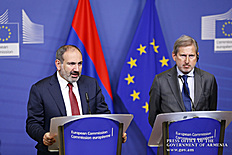 1670x1113px - 577 Kb
1670x1113px - 577 Kb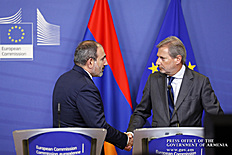 1670x1113px - 589 Kb
1670x1113px - 589 Kb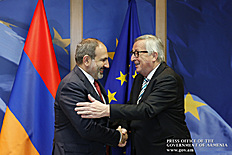 1670x1113px - 580 Kb
1670x1113px - 580 Kb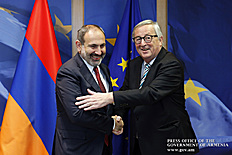 1670x1113px - 557 Kb
1670x1113px - 557 Kb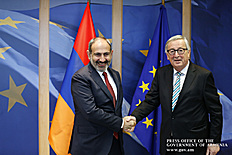 1670x1113px - 585 Kb
1670x1113px - 585 Kb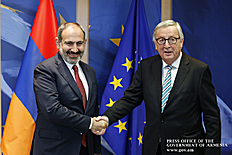 1670x1113px - 602 Kb
1670x1113px - 602 Kb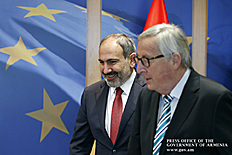 1670x1113px - 595 Kb
1670x1113px - 595 Kb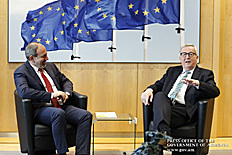 1670x1113px - 579 Kb
1670x1113px - 579 Kb
more 92 photos
On March 3, 2019, Prime Minister Nikol Pashinyan arrived in Brussels on a working visit. Early on March 4, the Prime Minister visited Leuven, the capital of Flemish Brabant province of the region of Flanders, which is located not far from Brussels and is considered to be a major university center in Belgium.
Nikol Pashinyan’s visit kicked off at the Catholic University of Leuven, where he was greeted by University Rector Luc Sels. Welcoming the Prime Minister of Armenia, the Rector said he was honored to host the Prime Minister-led Armenian delegation, noting that the Catholic University of Leuven is ready to develop cooperation with Armenia.
Introducing the University’s ongoing activities, Luc Sels noted that it is the largest and most famous university in Belgium, which implements educational and research-based international programs. All academic programs are based on innovative research by university scientists and professors.
According to him, the Catholic University has 14 branches in 10 cities of Belgium and carries out multifaceted educational and research projects. Education is provided at 15 faculties, and the research work - through individual departments and research groups. The faculties and departments are united in three groups: humanities and social sciences, natural sciences, engineering and technology and biomedical science, each of which offers a doctorate degree in relevant qualification programs.
The Prime Minister was also briefed on the activities carried out by Leuven’s Research and Development Technology Transfer Office. Prime Minister Pashinyan noted that it was a great honor to be hosted in one of the oldest and most modern universities in the world, which for almost six centuries has been promoting European science and is considered to be one of the 50 best universities in the world.
Nikol Pashinyan advised that Armenia is in the process of fundamental political and economic reforms and the government considers education as one of the most important tools on the way to an economic revolution.
“The primary goal of my government’s educational policy is to ensure effective communication between education and research. We want to drastically reform the education system, and in this context, we highlight the exchange of experience, the implementation of joint programs with leading and innovative educational and scientific institutions of the world,” the Premier said, pleased with the Catholic University’s readiness for interaction.
Issues related to cooperation opportunities in the sphere of education were discussed during the meeting. The Prime Minister left Leuven’s Catholic University for the IMEC (Interuniversity Microelectronics Center) Research Center to get acquainted with its activities and discuss cooperation prospects.
IMEC’s Vice President Ludo Deferm presented the ongoing programs, noting that the Center specializes in micro- and nano-electronics and digital technologies with a focus on new generation equipment. He said that the nearly 4,000 staff-strong IMEC is involved in the Netherlands, Taiwan, China, India, the United States and Japan. Nikol Pashinyan toured the center’s semiconductor cleaning laboratory.
The Prime Minister’s next port of call was Leuven’s Health Center, a joint project of Leuven’s Catholic University and IMEC Research Center. Accompanied by IMEC Director Isabelle Francois, Nikol Pashinyan toured the exhibition hall to get acquainted with the Center’s activities and goals.
Isabelle Francois advised that the Health Center is a unique experimental institution whose visitors can get acquainted with the future of healthcare through innovative technologies. The Premier was told how artificial intelligence, 3D modeling, carriers and nanotechnologies can influence the development of healthcare in the future.
Prime Minister Pashinyan advised that Armenia is hosting the Global IT Congress this year and invited the Rector of the Catholic University of Leuven, the Vice President of IMEC Research Center and the Health Center’s Director to attend the event.
* * *
Prime Minister Nikol Pashinyan is in Brussels on a working visit. The Head of the Armenian Government today visited a number of educational and research institutions in Leuven, the capital of Flemish Brabant province of the region of Flanders.
Memorandums of Understanding were signed for the development of bilateral cooperation in the field of high and innovative technologies. Attended by Armenia’s Prime Minister, a Memorandum of Understanding was signed between the Ministry of Education and Science of the Republic of Armenia and the Department of Foreign Affairs of Flanders. The document was signed by Ambassador Extraordinary and Plenipotentiary of the Republic of Armenia to the Kingdom of Belgium Tatul Margaryan and Secretary-General of the Department of Foreign Affairs of Flanders Freddie Evans.
Another Memorandum of Understanding was signed between IMEC Research Center and the Enterprise Incubator Foundation of Armenia. The document was signed by IMEC Research Center’s Vice President Ludo Deferm and Enterprise Incubator Foundation Director Bagrat Yengibaryan.
According to the memorandums, the parties will exchange experience in the field of high technologies and innovation. They will coordinate and implement joint educational programs and research projects.
* * *
Prime Minister Nikol Pashinyan who is in Brussels on a working visit today called at the European Parliament. The Premier was greeted by Foreign Affairs Committee Chairman David McAllister.
Prime Minister Pashinyan addressed the Foreign Affairs Committee with a speech, in which he stated:
“Chairman McAllister,
Distinguished members of the European Parliament,
Ladies and Gentlemen,
I am honored and privileged to address the Foreign Affairs Committee of the European Parliament.
After the Velvet Revolution it is the first opportunity for the Armenian Prime Minister to speak at the Foreign Affairs Committee.
Hence, I would like to focus, in particular, on the fundamental changes that already happened and are currently taking place in my country. I will also speak about the challenges that we are facing today and about our goals and plans for the future.
Distinguished colleagues,
Armenia is currently undergoing changes which are unprecedented in their nature and magnitude - changes that are completely transforming our political and economic landscape.
Last spring a nonviolent revolution occurred in Armenia. Armenian people, guided by the slogans of love, tolerance and fraternity, stood up to protect their political rights and build a society in conformity with their ideals and values.
They opted for democracy and pluralism, for justice and equality. They spoke against corruption and a political system based on a client-patron relationship. They stood against the elite which monopolized the political and economic life of the country; against oligarchic economy, and against those who established and exploited extractive institutions leading the country to a standstill.
Velvet Revolution restored democracy in Armenia!
The snap parliamentary elections, held last December, reinforced our achievements. Those political forces behind the revolution won a landslide victory. We gained an overwhelming support of the Armenian people – more than seventy percent of the votes.
For the first time in about twenty-five years, the elections held in Armenia were not contested by any political party. It is equally important to say that the recent elections obtained the best possible assessment of the European observers who hailed them as free, fair, and transparent.
I am confident that the victory of democracy is irreversible in our country! My confidence is based on the following premises. First, ideas of freedom and democracy have deep roots in the core values of our people. Armenia was one of the first countries where a nation-wide popular movement arose against the former communist regime back in late 1980s.
The restoration of our independence in 1991 was indisputably aimed at establishing society based on constitutional democracy, rule of law, and liberal values. The distortion of democracy, which we witnessed in our country during the last twenty years, happened as a result of a deviation from the initially chosen path of development. It originated from a wrong and misleading interpretation of our traditional set of values and aspirations.
Second, the democratic transformation in our society is based on a wide social demand coming from all layers of the Armenian society and the six-million-strong Armenian Diaspora worldwide.
This progressive process was born out of the will and aspirations of our people. Moreover, it had nothing to do with outside forces. It did not produce any tectonic shifts in our foreign policy nor originated any changes in our foreign policy strategy. Armenia remains committed to its foreign policy obligations and partners.
Third, democracy is not merely one of the viable options for us. Rather, it is a matter of security for us. We believe that for our people and our political culture it is true to claim that democracy provides for stronger and more efficient economic and political institutions, which constitute an important precondition for the development of country.
Therefore, we couldn’t afford the luxury of under-developed institutions which previously existed in our country. They caused economic inefficiency impeding the progress of our country. Promoting our economic and political institutions became an imperative in Armenia. It has no alternative today.
We need democracy in order to be competitive in the 21st century! However, democracy needs to be protected and reinforced. What are the main challenges that we are facing today?
First of all, it is the poverty which still exists in our country. Today, the people who live under the poverty line make up about one third of our total population. They constituted the main social basis for fraud elections and electoral bribes that we were witnessing in the past.
In our society there is an obvious correlation between economic development and democracy. Erosion of the middle class was actually accounting for the decline of democracy that we witnessed in the past. Thus, a strong and viable middle class is considered to be one of the main prerequisites for sustainable democracy in Armenia, and the economic revolution is chosen, therefore, as the next goal of our Government and the cornerstone of its Program. With this view in mind, we have adopted and already started implementing an ambitious reform agenda.
As I mentioned on many occasions, among the current priorities of the Armenian Government are the fight against corruption, eradication of monopolies, elimination of poverty, consolidation of the independent judiciary system, establishment of rule of law, and a level playing field for all economic and political actors.
We are going to put in force a package of robust measures to reform our tax and custom systems.
We also focus on reforming our education system. People should be able to live and create in a rapidly evolving and shrinking world, in which progress is driven by knowledge.
I am proud to inform you that a lot of visible changes have already occurred in our country over the past few months. For example, we have already eradicated systemic corruption in Armenia.
The power of monopolies and existing oligopolies in Armenia has already been strongly reduced. Today, there is nobody in Armenia able to use political influence to achieve economic goals anymore.
Distinguished Colleagues,
While implementing our reforms policy we are stumbling on obstacles. One thing is clear in this regard: implementation of the Comprehensive and Enhanced Partnership Agreement with the European Union is of tremendous importance for the success of our reforms!
The value and the attractiveness of this initiative are in achieving its objectives exclusively through the implementation of reforms. CEPA is a reform-generating tool. The fulfillment of its provisions will entail qualitative changes in many areas of our society.
Taking this opportunity, I would like to assure you that the Government of Armenia is resolute to take all necessary measures to implement the CEPA. We are determined to conduct an active and fruitful cooperation with the European Union in all areas of mutual interest.
In this regard, I want to note that early ratification of the CEPA by the EU Member States is crucial for its complete entry into force and further enhancement of our bilateral relations.
At this point more than one-third of the Member States have already ratified the Agreement, and we are hopeful that in the near future the rest will follow suit. On this matter we very much count on the Parliament's support and your personal contribution.
Within the context of our cooperation agenda I would also like to mention the Visa liberalization dialogue. Opening of the process will greatly contribute to the people-to-people contacts and to our cooperation in general.
Taking the opportunity, I would like to ask your support in promoting this case, given the fact that Armenia is consistently implementing all requirements on this issue.
The financial and technical assistance of the European Union remains critically important for us. We need your support to make robust steps in implementing our reforms. It is obvious that an enhanced assistance of the European Union will help us move forward in a more resolute and decisive way. The wider the scope of the assistance the faster and smoother the pace of our reforms!
Distinguished colleagues,
Geopolitical and security risks that continue to mar the South Caucasus are the other challenges that we are facing today. They seriously undermine our reform potential.
First, the unresolved Nagorno-Karabakh conflict and the existing tension in our region create political risks which are significantly affecting the investment attractiveness of our country and the region as a whole.
Second, arms race unleashed by our opponents poses additional difficulties for the region of South Caucasus.
Today, Armenia has to allocate a large portion of its scarce resources to maintain the peace in the region. It is Armenia which actually bears the economic burden of keeping the existing balance and preventing another outburst of hostilities.
Third, closed borders and the continuing transport blockade, imposed on our country since early 1990s, sharply reduces the possibilities of diversifying our economy.
And finally, the sanctions against Iran are also having negative consequences on our economy reducing the availability of one of two corridors connecting Armenia to the rest of the world.
Esteemed members of the Parliament,
As I mentioned the Nagorno-Karabakh conflict, I would like to stress the constructive and balanced approach of the European Union toward this issue.
It is our view that the international community should continue to support the peace efforts of the OSCE Minsk Group Co-chairmanship, especially by sending clear message that the use of force is impermissible.
We are confident that the path to the resolution of the conflict lies through the understanding of the need for the respect of the right of the people of Nagorno-Karabakh to self-determination.
People of this mountainous region have lived in de facto independence for more than two decades. There is a generation of young people there who cannot imagine any alternative to the independence.
If we seek for a peaceful, just and lasting solution to the conflict, the people of Nagorno-Karabakh should be allowed to define their future by themselves.
I am not representing the people of Nagorno-Karabakh. As the Prime Minister of Armenia, I only have the mandate of the citizens of Armenia, but not the Armenian population of Nagorno-Karabakh who have their own constitution and form their own Government.
It is obvious for me that the peace process could produce a real progress only if the people of Nagorno-Karabakh have a seat at the negotiation table; only if the voice of the people of Nagorno-Karabakh is heard and taken into account.
Distinguished colleagues,
We are deeply convinced that trust between the involved parties is one of the important prerequisites for the settlement of conflicts. This confidence can be reached through evolving dialogue and mutual understanding.
We see the South Caucasus as a region where independent nations live in peace, solidarity, and cooperation. Indeed, in the modern world, closed borders are considered at least economic and political nonsense.
The world is changing by the day, resulting in a greater interconnection and interdependence. New forms of dialogue, coexistence, and economic cooperation are needed in our region. Culture of dialogue, tolerance and compromise should prevail over all differences and discrepancies existing in South Caucasus.
Thank you for your attention.”
* * *
Prime Minister Nikol Pashinyan is in Brussels on a working visit. On March 4, following the remarks delivered at the Foreign Affairs Committee (FAC) of the European Parliament, Nikol Pashinyan answered the questions asked by FAC members concerning the political and economic changes in our country, the development of democracy, the reform of the judiciary, the fight against corruption, the Nagorno-Karabakh conflict, EU-Armenia cooperation, Armenia’s foreign policy priorities, etc.
Thanking FAC members for their positive assessments, the Armenian Prime Minister said: “I would like to highlight three aspects of the processes underway in Armenia. First of all, we need to create strong democratic institutions. Of course, we must continue to improve the electoral system, so we need to cooperate efficiently with the European Union. We see that our European partners are prepared to support us. I would like to assure that we are firmly determined to fully implement the Comprehensive and Enhanced Partnership Agreement since we are convinced that it fully complies with our overall policy agenda and priorities.
As to the fight against corruption, I should note that it is extremely important for us to establish the rule of law in the country. Several criminal cases have been filed against former officials. The exposure of corrupt behavior will continue. It is up to courts to decide the fate of those criminal cases, and in this regard, it is extremely important to ensure the independence of the courts.
From the very beginning, our government endeavored to put an end to the vicious practice of influencing court decisions. But I am not sure that the former authorities, or if you want the oligarchy no longer make use of their leverages and tools to influence the courts. Nevertheless, we are not going to interfere with court dealings in any way: our goal is to make the judiciary truly independent.
The funds looted from the state should be returned, and we hope that we will succeed in building effective cooperation with the European Union to achieve that goal. It is extremely important for us that the OSCE has promised to assist the Armenian government in returning public funds to the state budget.”
Touching upon the Nagorno Karabakh conflict settlement, Prime Minister Pashinyan said: “Regarding Nagorno-Karabakh, I must say that there cannot be a military solution to the problem, and we need to create an appropriate atmosphere for a peaceful settlement. In September, I made an unprecedented statement in our parliament: I announced that the settlement of the conflict should be acceptable to the people of Armenia, the Artsakh people and the people of Azerbaijan. And I hoped that a similar statement might be heard from Azerbaijan, on the part of the President of that country, but unfortunately, these hopes were not fulfilled.
On the contrary, threats keep coming from Azerbaijan, which declares that they are ready to resolve the conflict through force without taking into account the interests of Nagorno-Karabakh and the Armenian population. I think that a quick solution to the problem is hardly possible under these conditions.
The issue of the negotiation format is also important. It is internationally recognized that the Karabakh conflict has three sides as stipulated at the 1994 OSCE Summit in Budapest. But so far only two sides have been involved in the negotiations, and unfortunately, Armenia and Azerbaijan have been negotiating without participation of Nagorno-Karabakh. Perhaps this was due to the fact that the previous two leaders of Armenia originated from Karabakh and considered that they could represent the interests of the people of Nagorno-Karabakh.
I am Prime Minister of the Republic of Armenia; I am not the Prime Minister of Nagorno-Karabakh. Nagorno-Karabakh residents are not participating in Armenian elections and are not citizens of the Republic of Armenia, which means that I cannot negotiate on their behalf. Therefore, the second aspect of the issue is that it is necessary to create an appropriate format of negotiations, which is impossible without the involvement of Nagorno-Karabakh in the talks.”
In response to questions about cooperation with Russia and the European Union, Nikol Pashinyan stated, in part: “The good news here is that the European Union did not raise a question of geopolitical choice for Armenia. Our cooperation agenda with the EU is focused on the implementation of reforms. Certainly, our cooperation with Russia is extremely important as we continue to be strategic partners, and I think there are no contradictions and cannot be in our relations with Russia and the European Union. We are transparent in our relationships: our rapprochement with the European Union does not imply any conspiracy against Russia, just as there is no plot against the European Union in our continued relations with Russia.
Cooperation in the field of energy is of vital importance to Armenia, and we intend to develop it with Russia and Iran. A few days ago, I visited Iran and we discussed the opportunities for deepening cooperation in the field of energy.”
Regarding the domestic political developments and economic changes in Armenia, the Prime Minister stressed that his government’s ideology remains the same in this context.
“A key feature of our ideology is to encourage people to take concrete steps in order to shape their own future. After the political revolution, we kept urging our citizens to more actively engage in economic activity.
Before the revolution, we had monopolies and oligarchy that restricted the economic opportunities in our country. Now we are opening the field, creating equal conditions for all players. What matters most is that we are also reforming our regulatory framework in favor of small and medium businesses. And we will try to create a new field of economic activity – the micro business - where people might be free from tax burden.
We are also going to make legislative amendments to improve the investment climate. We will develop infrastructures, and here we will need technical and financial support from the European Union. Again, I find it important to stress that we should continue to build stronger democratic institutions in Armenia. In conclusion, I would like to emphasize that democracy and the rule of law are irreversible in Armenia, and the former corrupt system has no chance of return in our country,” Nikol Pashinyan concluded.
* * *
On the evening of March 4, as the first day of his official visit to Brussels was nearing completion, Prime Minister Nikol Pashinyan met with Armenian business community representatives in Belgium, who are engaged in diamond processing, real estate and cargo transportation. The meeting was held at Villa Ampen Center for Eastern and Western Cultures and Dialogue in Brussels. Issues related to expanding Armenian-Belgian business ties were discussed during the working dinner.
The Prime Minister briefed those present on the steps taken by his government as part of the ongoing fundamental economic reforms, including the continued improvement of the business environment, the facilitation of the investment climate, the simplification and improvement of the applicable regulatory framework, and the anticorruption campaign. Nikol Pashinyan noted that the Government is keen to deepen bilateral economic cooperation and implement joint programs with Belgium.
* * *
The meeting was attended by Belgium-based Armenian businessmen: Boghossian Foundation President Jean Boghossian, Ralph Boghossian, Shahe Arslanian, Vigen Arslanian, Sahak Arslanian, Karen Arslanian, Andre Gumushian, Philippe Barsamian, Anton Akkayan, Hambik Ipekchian, Henri Ipekchian, Margar Grigoryan, Janik Kalantaryan, Gregoire Jakhian, Albert Karazivan, Director of the Belgian-Armenian Chamber of Commerce Valery Safaryan, Director of AGBU Belgian office, President of the Belgian-Armenian Committee Nicolas Davidyan, President of Hay Dat Committee in Europe Gaspar Karapetyan, Chairman of the Armenian Assembly of Belgium Michel Makhmurian, Armenian Apostolic Church Diocese Pastor, Reverend Father Zadik Avetikian.
* * *
Prime Minister Nikol Pashinyan’s working visit to Brussels continues. On the second day of his visit, the Prime Minister is scheduled to hold top-level meetings with the President of European Council.
On March 5, Prime Minister Pashinyan visited the European Council, where he was welcomed by European Council President Donald Tusk. Following the handshake and a video recording session by the flags of the Republic of Armenia and the European Union, a private meeting was held between Nikol Pashinyan and Donald Tusk, during which issues of bilateral cooperation were discussed.
European Council President Donald Tusk welcomed the Armenian Prime Minister’s visit to Brussels, noting that it will give an opportunity to discuss the course and the ways of developing EU-Armenia relations.
“Mr. Prime Minister, this is your second visit to Brussels. We have had productive discussions during your first visit, and our meeting today is a good opportunity to continue the dialogue,” Donald Tusk said.
Nikol Pashinyan noted that relations with the EU are one of the priorities of Armenia’s foreign policy. The EU is a reliable partner for Armenia, and the continued development of bilateral cooperation is more important today amid the ongoing democratic transformations in our country.
“Armenia is prepared to make every effort in a bid to add new ideas and initiatives to the cooperation with the European Union and EU-member states,” Pashinyan said.
Noting that the Government will not deviate from the democratic agenda announced by the Armenian authorities, the Premier highlighted the importance of EU’s assistance in many spheres, including the judicial reform, the reform of the police system and the development of economic infrastructures.
The Head of Government touched upon the visa liberalization process, noting that it would be an additional impetus for the development of cooperation between Armenia and the European Union.
With reference to the Comprehensive and Enhanced Partnership Agreement, both sides highlighted the ongoing work on CEPA ratification.
As they exchanged views on the settlement of the Nagorno-Karabakh conflict, the Prime Minister and the European Council President stressed the importance of a peaceful settlement for ensuring stability and security in the region. Nikol Pashinyan assured of Armenia’s continued commitment to the OSCE Minsk Group Co-Chairs format.
* * *
After their meeting in Brussels, Nikol Pashinyan and Donald Tusk made statements for mass media representatives.
RA Prime Minister Nikol Pashinyan: “Dear President Tusk,
Dear mass media representatives,
This is our second meeting with President Tusk in Brussels, and the first one after my reappointment as the Prime Minister of Armenia. I would like to thank you, Mr. President for the warm welcome and result-oriented discussions.
During our today’s discussions we touched upon many different issues, ranging from democratic transformations in Armenia to current regional and international developments.
We were glad to highlight the existing high level of the political dialogue and cooperation between Armenia and the European Union. I stressed that after the Velvet Revolution Armenia’s determination and political will to enhance the partnership with the European Union has only increased.
This year has already started with high level political visits and I am sure that in coming period it will continue with many important developments and events that will further foster our political dialogue and partnership.
In the course of our discussions we referred to the early parliamentary elections in Armenia, which were assessed by the international community as being fully in line with the best European practices.
There was an unprecedented public trust towards these elections in Armenia. In this context we also appreciate the assistance of the European Union for the successful organization of electoral processes.
Those dynamic political changes that took place in our country, as well as the democratic elections that we had brought Armenia and the European Union even closer in terms of our commitment to shared values. I am proud to declare that democracy is no longer endangered in Armenia.
I highly appreciate the European Union’s political, technical and financial support to our Government’s democratic and economic reforms agenda, which among others includes the fight against corruption, promotion of democracy and consolidation of the rule of law.
New Armenia is ready to make steadfast efforts towards enriching its cooperation with the European Union and its Member States with new ideas and initiatives. I am glad that our European friends and partners have a similar approach and vision on our bilateral agenda.
We are aiming to accomplish this ambitious agenda, based on the strong mandate of our citizens and compatriots as well as with the increasing support of our international partners.
During our discussion we touched upon the Comprehensive and Enhanced Partnership Agreement, which is an important instrument for enhancing our bilateral relations and implementing our reform agenda.
We agreed that the early ratification by all Member States is essential and will allow us to fully benefit from the opportunities envisaged by this document, which is being provisionally applied since June 2018. In this context we discussed the ways of further accelerating the ratification process.
We next discussed the launch of the visa liberalization dialogue. The citizens of Armenia are looking forward to the opportunity of freely traveling to the European Union in the near future. We do hope that the political decision in this matter will be taken shortly, since this will yield tangible results for our citizens and give our partnership even more visibility.
During our meeting with President Tusk we also touched upon the upcoming 10th Anniversary of the Eastern Partnership. I reiterated our willingness to actively engage in the joint preparations for the 10th anniversary of the Eastern Partnership.
We also discussed regional issues. We appreciate the EU’s continuous balanced position on the Nagorno-Karabakh conflict, which supports the OSCE Minsk Group Co-Chairs, their position and efforts for the peaceful resolution. This is a valuable contribution to the peace and security in our region.
I reiterated that Armenia is fully committed to the exclusively peaceful resolution of the Nagorno-Karabakh conflict.
In conclusion I want to express confidence that our existing dialogue and the fruitful discussions that we had today will contribute to the further enhancement of our partnership and the implementation of an already ambitious agenda of bilateral relations in all the fields of common interest.
I would like to once again thank you, Mr. President, for your warm welcome.”
President of European Council Donald Tusk: “Good afternoon, Mr. Prime Minister! I am glad to welcome you again to Brussels. First of all I would like to thank you for visiting Brussels shortly after your impressive victory in the December elections and your government’s inauguration.
The values advocated by your government are highly appreciated in Europe. I admire your determination to carry out democratic reforms and promote economic development from which all Armenians will benefit. The EU will continue to support Armenia in becoming a more consolidated democracy and creating a better future for its citizens.
We are determined to honor our commitment to implementing the Comprehensive and Enhanced Partnership Agreement, which will benefit both Armenia and the European Union.
The prevailing part of the agreement has already been applied and has had a tangible impact. The EU is Armenia’s largest exporting partner, with a share of over 28% of Armenia’s exports.
This agreement is being implemented in parallel with the internal improvements. The EU is ready to back your reforms with extensive technical and financial support. We are concurrent with your strong emphasis on the fight against corruption and the rule-of-law targeted reforms.
Today, we discussed the Nagorno-Karabakh conflict settlement. As you know, the EU fully supports the Minsk Group Co-Chairs and their proposals. Inspired by the recent contacts between the leaders of Armenia and Azerbaijan, I welcome the easing of tensions in the region.
The EU continues to believe that the status quo is unstable: the conflict cannot have a military solution and needs a quick political settlement in accordance with international law. Preparing the respective populations for peace is an important step toward the settlement, and we are ready to provide every possible support.
I also wish to thank the Prime Minister for Armenia’s valuable contribution to the Eastern Partnership. The Partnership marks its 10th anniversary in May. We agreed to meet again to discuss the progress that has been made over the past 10 years. So, I look forward to seeing you again in Brussels in two months during the May jubilee celebrations.”
* * *
As part of his official visit to Brussels, Prime Minister Nikol Pashinyan today met with Federica Mogherini, Vice-President of the European Commission and EU High Representative for Foreign Affairs and Security Policy.
Welcoming the Prime Minister’s visit to Brussels, the EU High Representative for Foreign Affairs and Security Policy stressed the importance of closer cooperation with Armenia. She reaffirmed the European Union’s willingness to continue supporting the democratic reforms in Armenia aimed at strengthening the rule of law, protecting human rights, combating corruption, promoting economic progress, etc.
Prime Minister Nikol Pashinyan noted that the European Union is a reliable partner for Armenia. He emphasized that the political changes in our country have strengthened the ties between Armenia and the European Union, which share the same values. The Premier said that Armenia and the European Union boast a high-level political dialogue as evidenced by reciprocated top-level visits. Nikol Pashinyan added that his government is eager to develop effective cooperation in all areas of mutual interest.
The parties discussed issues related to the EU-Armenia Comprehensive and Enhanced Partnership Agreement, visa liberalization, EU assistance to the reforms initiated by the Armenian government and the agenda of bilateral cooperation.
Nikol Pashinyan and Federica Mogherini exchanged views on regional issues and discussed the Nagorno-Karabakh conflict settlement process. The interlocutors stressed the importance of a peaceful settlement of the Nagorno-Karabakh conflict within the framework of the international mandate given to the OSCE Minsk Group Co-Chairs.
* * *
Prime Minister Nikol Pashinyan, who is in Brussels on a working visit, and European Commission President Jean-Claude Juncker today made statements for mass media representatives following their talks in Brussels.
RA Prime Minister Nikol Pashinyan and EU Commissioner for European Neighborhood Policy and Enlargement Negotiations Johannes Hahn answered journalists’ questions.
Prime Minister of the Republic of Armenia Nikol Pashinyan:
“Dear Mr. President,
Dear Commissioner Hahn,
Dear Mass Media Representatives,
I would like to thank President Juncker and the EU leadership for the warm welcome and constructive discussions.
Today we had very fruitful discussions on the current state of the Armenia-EU partnership, particularly in the context of the irreversible democratic transformations that took place in Armenia last spring.
I stressed once again the strong commitment of Armenia’s new leadership towards the consolidation of the rule of law, promotion of democracy, uncompromising fight against corruption, as well as artificial monopolies, economic preferentialism and oligarchy, while ensuring full and free exercise of fundamental rights by the people of Armenia.
At the same time, it is axiomatic that in order to keep the democracy viable in any country, we need strong and viable economy. For this reason, the next step for us is the reinforcement of those democratic transformations by further revolutionary changes and reforms in our economy. This is one of the primary goals and the cornerstones of our Government’s new Program.
The European Union is our key trade partner and the biggest donor. During our talks I shared with President Juncker the vision of our Government and our priorities, around which we had useful exchanges. My current visit and meetings with the EU leadership demonstrated our increased mutual interest and readiness to deepen our partnership.
I am glad to note that we have a common understanding with President Juncker that we should continue and deepen our cooperation with the European Union in tackling mentioned problems and bringing into life the ambitious reform agenda of our Government, with the EU’s enhanced political, technical and financial support. In this regard the new Armenia-EU Comprehensive and Enhanced Partnership Agreement is an important platform.
The leadership of Armenia has demonstrated on numerous occasions its commitment and political will towards the effective implementation of this document.
In the course of our meeting we also discussed the ways to expedite the ratification process by the EU Member States, which will allow us to fully benefit from the opportunities envisaged by the CEPA.
Together with our European colleagues, the interagency commission tasked with the coordination of the implementation of the CEPA and the EU-Armenia Partnership Priorities document will soon finalize the CEPA implementation roadmap. Concurrently, the government-civil society consultations on the Road Map are about to be launched.
We regard the CEPA in general and the Roadmap in particular as an essential blueprint for the reforms process in our country.
During all my meetings with the EU leadership we discussed the importance of launching a visa liberalization dialogue, which remains an issue of top priority in our bilateral relations. I have also solicited President Juncker’s personal facilitation in this matter.
I also highlighted that the Armenian government is resolved to the steady implementation of the "20 Deliverables for 2020" document and efficient delivery of its results.
We also touched upon the Nagorno Karabakh peace process. I expressed our appreciation towards the EU’s continuous balanced position on the Nagorno Karabakh conflict, which supports the OSCE Minsk Group Co-Chairs, their position and efforts for the peaceful resolution.
We also reflected on a number of regional and global developments.
To sum up, I would like to once again emphasize the high level of our political dialogue, the atmosphere of mutual understanding and partnership that prevails in our relations with the European Union.
I would like to once again thank you President Junker for the warm welcome and positive dialogue.”
President of the European Commission Jean-Claude Juncker: “I welcome you to Brussels, Mr. Prime Minister. I am very happy to greet you and congratulate you on last year’s elections. The victory of your political force is a piece of good news for Armenia and for us.
The Prime Minister has pinned the reforms and the cooperation with the European Union at the heart of his agenda and we welcome it. The more the Republic of Armenia is reformed, the more we will support Armenia, both financially and politically.
We are going to provide Armenia with 176 million euros for the protection of human rights and fundamental reforms in 2017-2020. But as the Prime Minister has repeatedly mentioned, there is still a lot of work to do, especially as regards the fight against corruption and the judicial reform. We know that the Prime Minister treats those goals seriously and intends to work in that direction. We also talked about the visa liberalization dialogue.
Today, as we have mentioned several times, the technical conditions have already been met, and the time has come to cooperate with all member states so that we can move forward together.
I myself and Commissioner Hahn are ready to support this process as much as possible, and while talking to the Prime Minister, we noted that we were going to launch a stronger dialogue with those member states consistent in this matter. But we, as the European Commission, stand for the start of talks on the visa liberalization dialogue as soon as possible. This is important for both Armenia and the European Union. This is a matter of strong commitment for us as we want more Armenians to travel to the European Union and vice versa.
We do not want people to perceive us only through institutions, we want people to travel freely so that the Armenians could come to Europe without a visa, get closer and better know us. We have also developed six projects to boost ties with neighbors. Continuation is crucial: people need to communicate with each other in addition to their states and governments. And we are trying to do everything in this matter.
I spent more time with the Prime Minister than I had planned. Although I must be off in a few minutes, I will pay close attention to my friend Nikol and the Commissioner.
I must say that Armenia and the European Union are moving forward together. These words are mainly addressed to the Armenian participants in this press conference, we are allies and we are ready to assist Armenia as much as you may wish.”
Question: The second phase of the revolution - the economic revolution - has started in Armenia. I wonder which aspects of cooperation you can see with Armenia in specific areas, taking into account the “more for more” principle. Thank you.
EU Commissioner for European Neighborhood Policy and Enlargement Negotiations Johannes Hahn: “The Prime Minister noted that Armenia presented a roadmap for 13 concrete projects a week ago, and we agreed that greater attention should be paid to the economic component, that is, the support to the business sector. We have already created a result, namely the local banks can provide European loans to small and medium-sized businesses and micro-companies in local currency to eliminate exchange rate risks.
But any economy needs infrastructure. That is why connectivity is very important in our agenda, which calls for investments in roads and railways. It also needs functional electrical networks, energy transmission, export and more.
Energy efficiency is another issue, which may help create jobs in small and medium enterprises rather than in industry. Together with our team, we are now looking for most prospective programs, but there must be different programs. We cannot just do something and ignore others, we must take it together, and as our president said, we are prepared to assist Armenia in all these efforts.”
Question: You met several times with your Azerbaijani counterpart over the past few months. We would like to know whether there are new accents that can be put on record. And if so, we would like to hear Mr. Hahn’s response to the question as to how the EU can step up its support for the peaceful settlement of the Nagorno-Karabakh conflict.
RA Prime Minister Nikol Pashinyan: “You may know that our contacts have been of informal nature and we have not talked about ways and means of settling the Karabakh issue in general. So, I think there is some misunderstanding in your question as to whether there is something to add.
We have yet to begin to discuss, and I have already said in Tehran that our upcoming meeting should inter alia feature a discussion on the format of the negotiations, because we do believe, and our position has not changed so far, that in order to achieve an eventually effective solution, we first of all need to create an appropriate format, which would imply Nagorno-Karabakh’s participation in the negotiation process.”
EU Commissioner for European Neighborhood Policy and Enlargement Negotiations Johannes Hahn: “First of all, I would like to note that during the new prime minister’s term of office, we had an opportunity to organize new meetings between the leaders and the foreign ministers. Those new meetings are already a breakthrough.
As far as our support is concerned, I think we should leave everything as it is in the current format where discussion and negotiations are underway: we need not create anything new. But mutual confidence building steps are very important. And what can we do from the outside as the EU?
We can support the entire region and we can promote cooperation between the countries in different areas. In other words, there should be many opportunities, but there are things that call for some time. Nevertheless, I feel that at this point the conditions in the region are quite favorable for improving the regional situation.
We must support, but only at the request of the parties, because they themselves know what to do, how to work together, and we should be ready to assist if the parties ask us to do so.”
* * *
On March 5, Nikol Pashinyan met with European Commission President Jean-Claude Juncker in Brussels. The meeting was held in the Berlaymont building of the Commission. Welcoming Prime Minister Pashinyan to Brussels, Jean-Claude Juncker highlighted its importance in the context of the ongoing discussions on the process and prospects for EU-Armenia cooperation.
The President of the European Commission noted that the democratic reforms in Armenia are exciting and went on to reaffirm the European Union’s determination to continue providing Armenia with financial and advisory support under the More for More principle. As Jean-Claude Juncker pointed out, the EU will assist the Government of the Republic of Armenia in protecting and promoting human rights and fundamental reforms in a wide range of spheres.
Nikol Pashinyan thanked Jean-Claude Juncker for the warm welcome and his readiness to support our country. The Head of the Armenian Government noted that continued cooperation with the European Union is of crucial importance to Armenia, specifically in terms of economic development and the strengthening of democratic institutions.
The Prime Minister stressed that our country is going through drastic political and economic transformations, and the Armenian authorities are firmly determined to pursue the reforms aimed at strengthening the rule of law, protecting human rights and fundamental freedoms, developing democracy, combating corruption and creating a favorable business environment. Nikol Pashinyan underscored that the European Union has not set forth a precondition of geopolitical choice in the context of Armenia’s reform agenda, which will facilitate the Government’s cooperation with European structures.
Highlighting the high level of the ongoing EU-Armenia political dialogue, the parties discussed prospects for building ever closer partnership between the sides. In this context, they first stressed the importance of the EU-Armenia Comprehensive and Enhanced Partnership Agreement (CEPA) and the roadmap for its implementation, and went on to exchange views on ways to speed up the process of ratification by EU-member States.
Nikol Pashinyan and Jean-Claude Juncker next discussed issues related to infrastructure development and opportunities to expand cooperation in the energy sector. They exchanged views on possible cooperation in reforming the Electoral Code that will bring Armenia’s electoral processes into conformity with the highest international standards. The parties stressed the importance of developing economic cooperation between Armenia and EU-member States and underlined the steps taken to organize a business forum.
The Prime Minister of the Republic of Armenia and the President of the European Commission also discussed the process of visa liberalization, which is one of the priorities of bilateral cooperation. The parties stressed the need to start a dialogue to this end. Jean-Claude Juncker noted that visa liberalization will not only foster interstate and government-to-government cooperation, but will also help strengthen human ties, and therefore, the EU is ready to back this process.
Nikol Pashinyan and Jean-Claude Juncker next exchanged views on the Nagorno-Karabakh conflict settlement process. The Prime Minister expressed his gratitude for the EU’s balanced position in the settlement of the Nagorno-Karabakh conflict in tune with the position and efforts of the OSCE Minsk Group Co-Chairs. The interlocutors took the opportunity review the latest regional and international developments.
Following the meeting, the Armenian Prime Minister and the President of the European Commission made statements for mass media representatives summarizing the results of their talks, after which Prime Minister Pashinyan and EU Commissioner for European Neighborhood Policy and Enlargement Negotiations Johannes Hahn answered journalists’ questions.